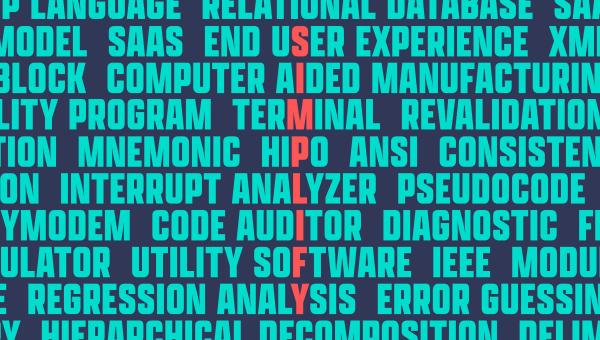Learning Analytics Specialist: Key Skills,Roles,and career Path Explained
Are you passionate about harnessing data to improve teaching and learning outcomes? Do you envision yourself shaping educational experiences at universities,colleges,or schools using cutting-edge technologies? If so,a career as a Learning Analytics Specialist in education technology may be for you! In this guide,we’ll delve into the vital skills,day-to-day roles,career trajectory,and practical benefits of this growing position. Whether you’re just starting out or are already in the education sector, discover how you can excel and make a meaningful impact.
What Is a Learning Analytics Specialist?
A Learning Analytics specialist uses data-driven methods to assess and enhance student learning experiences across educational institutions. By analyzing digital footprints—like interaction data from learning management systems (LMS), assessments, and engagement metrics—they help educators and administrators make informed decisions to improve teaching methods, curriculum design, and student retention.
- Workplaces: Universities, colleges, K-12 schools, online learning platforms
- Job Focus: Data analysis, educational technology, student performance enhancement
- Primary Tools: Learning management systems, data visualization software, statistical analysis platforms
Key Roles and Responsibilities of a learning Analytics Specialist
As a learning Analytics Specialist, your primary mission is to translate raw educational data into actionable insights. The daily responsibilities can vary, but typically include:
- Data Collection & Management: Gather data from multiple sources (LMS, online quizzes, attendance records) and ensure its integrity and security.
- Data Analysis: Use statistical tools and analytics software to identify trends and patterns related to student achievement and engagement.
- Reporting & Visualization: Create clear reports, dashboards, and visualizations to communicate findings to educators, administrators, and instructional designers.
- Strategy progress: Advise faculty and leadership teams on best practices and interventions based on analytics results.
- Continuous Improvement: Monitor the effectiveness of implemented changes, making iterative improvements based on new data.
- Professional Development: train staff and faculty on interpreting data and using analytics platforms.
Essential Skills for Learning Analytics Specialists
To thrive as a Learning Analytics Specialist in educational settings,you’ll need a blend of technical expertise,analytical thinking,and strong communication skills. Here are the key competencies sought by employers:
Technical Skills
- Data Literacy: Ability to clean, organize, and maintain large datasets.
- Statistical Analysis: Proficient in statistical methods and software such as SPSS, R, python, or SAS.
- Data Visualization: Skilled in creating interactive dashboards and graphics using tools like Tableau or Power BI.
- LMS Knowledge: Familiarity with platforms such as Canvas,Blackboard,Moodle,and their analytics features.
- Database Management: Experience working with SQL, cloud storage solutions, or educational data warehouses.
analytical & Critical Thinking Skills
- Problem-Solving: Capable of identifying challenges in student learning and developing data-driven solutions.
- Insight Generation: Able to detect learning gaps and suggest targeted interventions.
- Attention to Detail: ensures accuracy and reliability in analysis and reporting.
Communication & Collaboration Skills
- Stakeholder Engagement: Translating complex analytics into actionable recommendations for non-technical audiences.
- Teamwork: Collaborating with educators, instructional designers, IT staff, and administrators.
- Training Skills: Educating staff and faculty on data literacy and analytics platform use.
Education and Qualifications
Most Learning Analytics Specialists hold a bachelor’s or master’s degree in a related field:
- Education technology
- Data Science/Analytics
- Statistics or Computer Science
- Instructional Design
Professional certifications in data analytics, educational technology, or specific software tools can further improve your prospects.
Typical Career Path and Advancement
the role of Learning Analytics Specialist offers a dynamic pathway within the edtech landscape. here’s how your career might progress:
- Entry-level: Begin as a Data Analyst or EdTech Project Coordinator, focusing on data collection and basic analysis tasks.
- Mid Career: Progress to learning Analytics Specialist or Instructional Data Analyst, managing complex analytics projects, leading teams, and developing strategy.
- Senior Positions: Advance to Director of Learning analytics, EdTech Manager, or Chief data Officer in educational institutions, overseeing analytics programs and digital transformation initiatives.
Learning Analytics Specialists may also move into adjacent fields such as curriculum development, instructional design, or edtech consulting.
Benefits of Working as a learning Analytics Specialist
Choosing a career in learning analytics within education technology brings a host of rewards, such as:
- Impact: Directly influence student success and institutional growth.
- Innovation: Work with the latest tools and technologies in educational data science.
- Growth Opportunities: As digital learning grows, demand for analytics professionals continues to rise.
- Collaboration: Engage with diverse teams across academic disciplines and administration.
- Professional Satisfaction: Play a key role in shaping future education strategies and policies.
Practical Tips for Pursuing a Career as a Learning Analytics Specialist
Ready to join the world of EdTech as a Learning Analytics Specialist? Here’s how to boost your chances of landing your dream role:
-
Build Your Technical Foundation:
- Learn data analysis tools (Excel, Python, R).
- Understand LMS analytics and educational platforms.
-
Gain Relevant Experience:
- Volunteer or intern in college IT or EdTech departments.
- Take part in research projects focused on student engagement.
-
Network in the EdTech Community:
- Join professional associations and attend conferences.
- Connect with current professionals on social platforms or alumni groups.
-
Stay Updated:
- Follow the latest trends in educational data analytics and technology integration.
- Subscribe to EdTech publications and university research bulletins.
-
Highlight Transferable Skills:
- Showcase your analytical, technical, and communication strengths in applications and interviews.
conclusion
The world of education technology offers limitless opportunities for data-driven professionals who want to make a difference.As a Learning Analytics Specialist, you’ll be at the forefront of transforming student experiences, driving institutional change, and integrating the latest innovations into everyday learning. By mastering the core skills, understanding your role, and being proactive about career development, you can position yourself as an invaluable contributor to schools, colleges, and universities embracing the future of EdTech.
Ready to take the next step? Start building your expertise in learning analytics today and become a catalyst for positive change in education!

